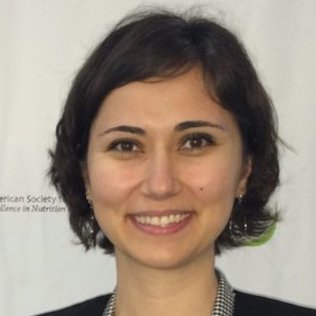Young Scientist of the Month: Zeynep Madak Erdogan

1) Would you please tell us about yourself and your journey that led you to become a scholar?
It was the third year of middle school when I heard about the Molecular Biology and Genetics department in Bilkent University and the studies on cancer that were going on in the department. From then on I was determined to attend this only Molecular Biology and Genetics department in Turkey at the time. In 1998 I joined the department. During the summers of my sophomore and junior years, I worked at two labs in the U.S. For my sophomore summer I joined Dr. Ozlem Equils’s lab at UCLA. The following year, I was awarded a summer research fellowship at Caltech and I joined Paul Sternberg’s lab. Enchanted by the rigor and speed of scientific exploration in these two U.S. labs, I knew I wanted more. So, I applied to many top Ph.D. programs and I had been accepted to Harvard and Princeton, ultimately choosing Harvard. My family circumstances drove me to move after a year to UCSF, where I worked as a research technician. In 2004 I joined the Ph.D. program at UIUC, continued my postdoctoral training and just after 3 years I was offered an independent faculty position in the same institution.
2) Tell us about your research and how it is related to everyday life or other fields.
My lab is interested in understanding the role nutrition and hormones play in women’s health. We are using systems biology approach where we take advantage of various high end –omics technologies to identify targetable biomarkers associated with breast cancer and postmenopausal metabolic syndrome and to understand how these biomarkers contribute to the progression and clinical outcomes. We are collaborating with epidemiologists, clinicians and engineers to ultimately design noninvasive, affordable, portable and accurate means of detecting and diagnosing diseases earlier, when treatment is more likely to be successful. Why women’s health? Because in majority of societies they are the main caretakers of the family, they decide what the family is going to eat, whether or not a family member needs to see a doctor. You need women to be healthy so that others in the family can be healthy.
3) What do you consider important to your success? Tell us about any skills or habits that you think helped you to become a successful scholar at such a young age.
“Love what you do and do what you love”. I loved every moment of being a scholar since I first stepped in the lab almost 18 years ago. Obviously working hard and managing my time efficiently helps.
I have a 6 year old daughter. She is one of the major reasons that I made it to this day. She helps me prioritize things in life and put things in perspective. Also, I know that I am the role model for her and she is still looking up to me.
4) What are your immediate and long-term goals for the future?
My immediate goal is to obtain my tenure and establish myself as a prominent researcher in my field. My long-term goal is to be able to make a difference in the clinical practice for patients with cancer. Make sure that scientists and clinicians know that they are not just treating a tumor, that they are treating a person who will potentially suffer from the side-effects of the treatment for the rest of his/her life.
5) What do you recommend to aspiring scholars, or to young Turkish scientists/scholars who are at the beginning of their careers?
Work hard, pursue your dreams. Don’t get discouraged by “No”.
6) Could you please tell us about your life outside of your work? Do you have hobbies? What are your favorite activities? If you recommend a book, what would that be and why?
I love plants and try to grow exotic varieties at home. I love cooking and walking. Recently, I read a book by Amin Malouf entitled “The last century before Beatrice”. Excellent writing but also topic is very interesting. Scientists discover a pill that enables families to have only sons. By the time society realizes the damage done it is too late. Scarcity of women causes a complete disarray in the society. I think, it is a sobering read that makes you think about the potential consequences of science.